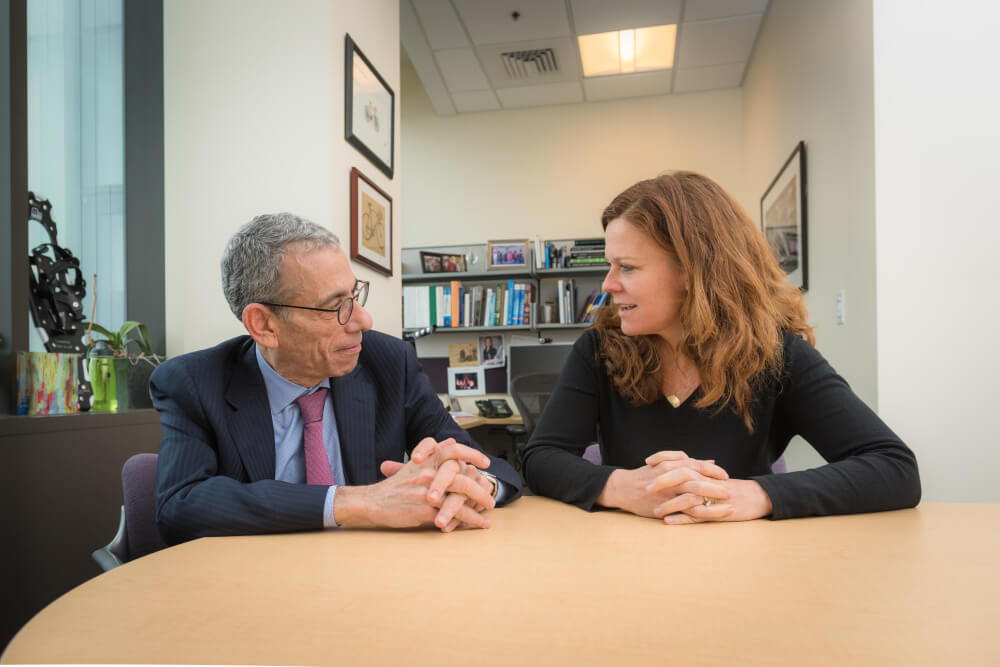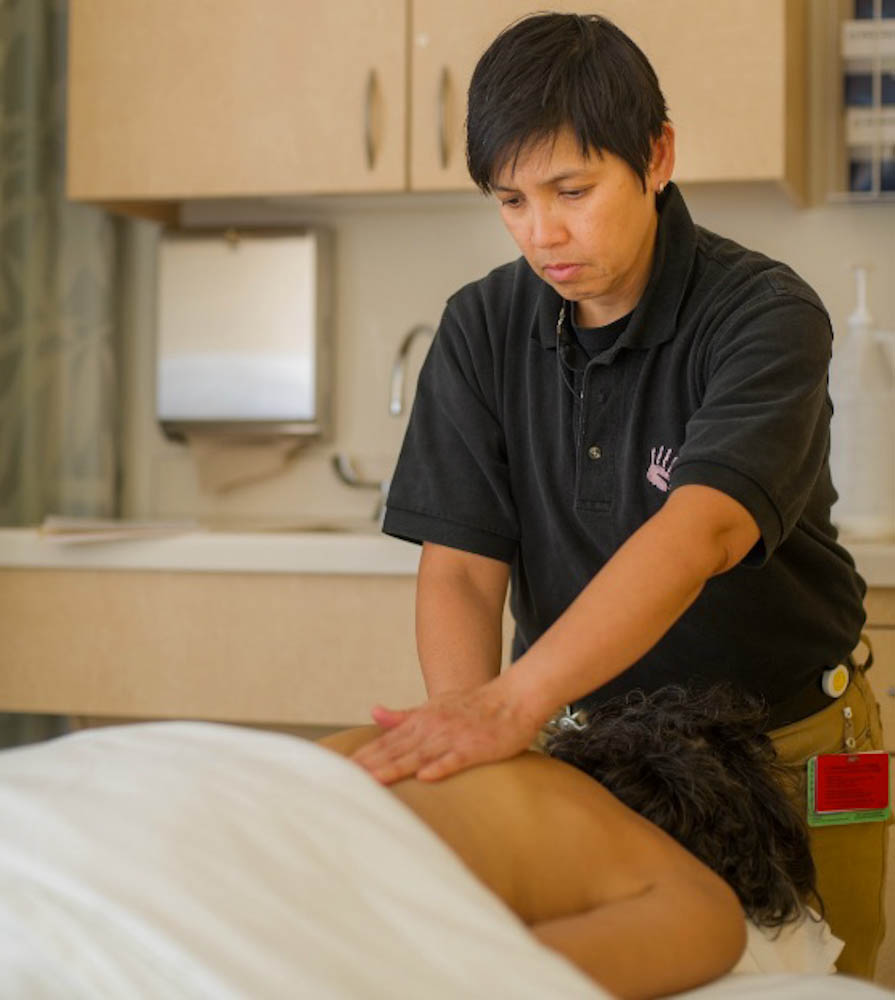Learning that you have breast cancer can be overwhelming. In the shock of a diagnosis, it may be hard to organize your thoughts or plan out your questions. But those questions are important, and there are likely to be many of them. The answers will have an impact on your treatment and the preparations you make for it.
At the time of your diagnosis, your oncologist and other members of your care team will explain each step of the treatment, possible side effects, and what you can do to manage these effects. It’s a great deal of information to absorb at once, and it’s natural to feel inundated. Doctors often recommend that patients bring a family member to the initial appointment, and to subsequent ones, to act as a second set of ears and provide support.
In the days that follow the initial meeting with your oncologist, you’re likely to come up with a wide array of questions. Doctors recommend keeping a running list of these so you can make sure they’re covered at subsequent meetings. Nothing should be out of bounds: anything that seems relevant or important to you, or anything that you want clarified, can be brought up with your oncologist.
Getting answers is critical because ultimately the decision on which treatment to receive is yours to make. Knowing your options, and being clear about your preferences, will help you participate fully in the decision-making process.

Many breast cancers involve treatment not only by a medical oncologist but also a surgical oncologist and radiation oncologist. You’ll probably have different questions for each of these individuals. Here, we’ll focus on questions for your breast oncologist. They can be divided into several categories.
About the cancer
- What is the stage of my breast cancer?
- How large is it? Are the lymph nodes affected?
- Is it ER (estrogen receptor) positive, meaning its growth is driven by the hormones estrogen or progesterone, and can be targeted by anti-estrogen drugs?
- Is it HER2-positive – meaning, do the tumor cells express the HER2 protein, which can be targeted by Herceptin and other drugs?
- Should I have genetic testing to understand why I got this cancer?
Treatment options
- What diagnostic tests are needed to determine what type of breast cancer I have?
- How does the type of tumor I have affect my treatment options and long-term outcome?
- What are the benefits and risks of each option?
- What treatment do you recommend and why? Should I get a second opinion?
- When should I start treatment?
- How long will treatment last? What will it consist of? Where will it be delivered? How much time will each treatment session take?
- What should I do to get ready for treatment?
- What do you expect the treatment to accomplish? What is my prognosis?
- Am I eligible for a clinical trial of new treatment?
Effects of treatment
- What are the most common side effects of the treatment I’ll be receiving?
- Will I lose my hair from chemotherapy? Is there anything I can do to reduce my hair loss?
- Will I experience peripheral neuropathy, a loss of feeling in the hands and feet?
- Am I likely to experience cognitive problems as a result of therapy? How long do they usually last?
- Will treatment be painful or fatiguing? Will I experience nausea?
- How will treatment affect my ability to perform daily activities? Can I still work full-time or part-time? Will I be able to take care of my family? What changes may I need to make in my daily routine?
- Do I need to limit my sun exposure?
- What are the possible long-term effects of my treatment?
- How will treatment affect my sex life? Can I become pregnant while undergoing treatment?
- Will I go through menopause as a result of the treatment? Will I be able to have children after treatment? Would I be able to breastfeed?
- What will I need to consider if I’m pregnant when diagnosed?
Self-care options
- Are there certain foods I should eat or avoid eating?
- Am I likely to lose weight as a result of treatment? Should I increase my calorie intake?
- Is exercise helpful or harmful?
- What kinds of integrative therapies — such as acupuncture, massage, and Reiki — might be helpful, and are there any I should avoid?

Genetic testing
- Should I be tested for genetic mutations that may have increased my risk of developing breast cancer, and may raise my risk of developing it again?
- If I test positive for such a mutation, what steps can I take to reduce the chance of developing breast or other cancer again?
- If I test positive, should other family members be tested as well?
During treatment
- How will we know if the treatment is working?
- What symptoms or side effects should I tell you about right away?
- Will I need special tests, such as imaging scans or blood tests? How often?
- What is the best way to reach you with questions? Who else on the care team may be able to provide answers?
- What can I do to manage side effects?
Following treatment
- Are there limits on what I can do?
- Do I need to follow a special diet? For how long?
- Am I at risk for lymphedema (swelling caused by a backup of lymph)? How can I reduce my risk of developing it?
- What other symptoms should I watch for?
- What kind of exercise do you recommend?
- When will the side effects of therapy subside? How long will it take my hair to grow back?
- How often will I have to come in for follow-up exams, including blood tests and imaging scans?
- What is my long-term outlook? What are the chances the cancer will come back? How long until I’ll be considered in the clear?
- How will I know if the cancer comes back? What signs should I watch for?
- If it does come back, what are my treatment options?
A variety of non-medical questions — such as the availability of support groups, psychological counseling, relaxation support, spiritual guidance, transportation to and from the treatment center, financial concerns, etc. — can often be answered by other members of your care team, including social workers and patient navigators.

I am now 4 years into treatment for breast cancer as I now have TNBC that has metastasized.
I just wanted to say I think this is a great list of questions. Several questions are on there which I wished I had thought of earlier in my journey.
Great advice. Thanks for all you do.